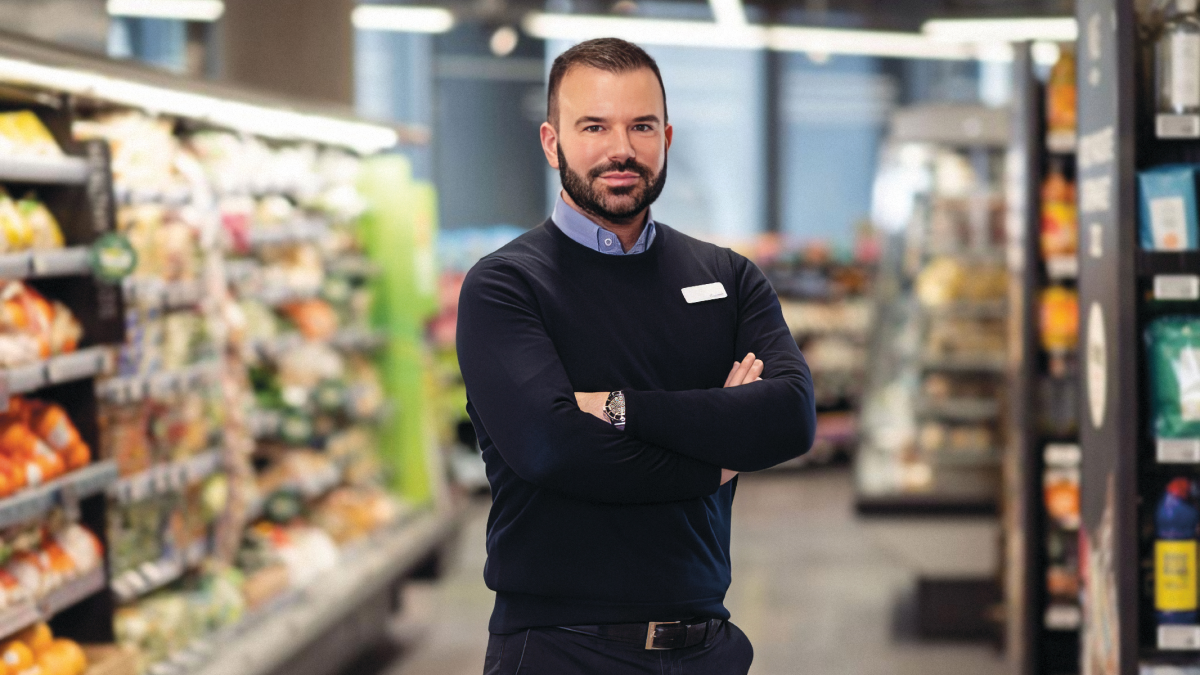The chief executive of Marks & Spencer has called the latest post-Brexit changes affecting food shipments to Northern Ireland “bureaucratic madness” that will heap red tape and costs onto retailers.
The final phase of the Windsor framework will come into effect from July 1, requiring new labelling for a wide range of food products moving from Great Britain to Northern Ireland. Items including composite foods, fresh produce and fish will now need individual “Not for EU” labels as part of efforts to prevent goods from inadvertently entering the EU single market.
Stuart Machin, M&S chief executive, urged the UK and EU to fast-track a comprehensive agri-food agreement to remove the need for such measures.
• The Times view on Starmer’s Brexit reset: New Beginning
“Next week sees the final phase of the Windsor framework come into effect, adding yet another layer of unnecessary costs and red tape for food retailers like M&S,” Machin said.
“One thousand-plus M&S products destined for Northern Ireland will need to have a ‘Not For EU’ label stuck on them. Another 400 will need to go through additional checks in the ‘red lane’.”
He added: “Quite frankly, it’s bureaucratic madness, confusing for customers, and completely unnecessary given the UK has some of the highest food standards in the world.”
Andrew Opie, director of food and sustainability at the British Retail Consortium, the trade body for retailers, echoed Machin’s concerns. “The thousands of additional products needing ‘Not for EU’ labelling in July, combined with hard line enforcement, means retailers face a huge challenge maintaining choice for their customers in Northern Ireland,” he said.
The “Not for EU” labels have been gradually introduced since 2023 as part of the UK-EU agreement that replaced parts of the original Northern Ireland Protocol in an attempt to reduce friction on goods moving across the Irish Sea.
While the Windsor framework eased some trade barriers, it introduced others, such as labelling rules, to satisfy EU concerns that goods from Great Britain might enter the single market via Northern Ireland.
Under the revised arrangements, checks and paperwork for food destined for retail in Northern Ireland have been significantly reduced. For example, the identity check rate on retail consignments will drop to just 5 per cent under the new phase.
The labelling and inspection requirements are intended to provide the EU with assurance that goods remain within Northern Ireland and do not cross the open border into the Republic of Ireland, a key principle of maintaining the integrity of the EU single market while avoiding a hard border on the island of Ireland.
However, retail leaders have long argued that the compliance regime places undue pressure on British businesses, particularly supermarkets with large ranges and complex supply chains.
• Why plant prices could fall after EU trade deal
Machin has been vocal in the past about the costs of Brexit for M&S. Speaking at the company’s 2023 general meeting, he described the UK’s departure from the EU as its “biggest challenge after inflation”.
“It added a considerable amount of complexity, cost and distraction and we are still trying to find the way through,” he said at the time.
The government is working on a long-term resolution. In May it announced an “agreement to agree” a future sanitary and phytosanitary (SPS) deal with Brussels, which could eliminate the need for the labels altogether if the UK and EU align on food and plant health standards.
“The government’s SPS deal with the EU will be game-changing,” Machin said. “It can’t come soon enough.”
A government spokeswoman said: “Labelling will only be required for certain food and drink products. Many things like cakes, bread, pasta and alcohol will not need to be labelled. And when implemented, agreements we secured at the UK-EU summit will reduce the need for this labelling and make it easier to move goods between the UK and Europe.
“We will continue to work closely with businesses to support them in implementing these arrangements, helping them to continue to move their goods smoothly across the UK.”
